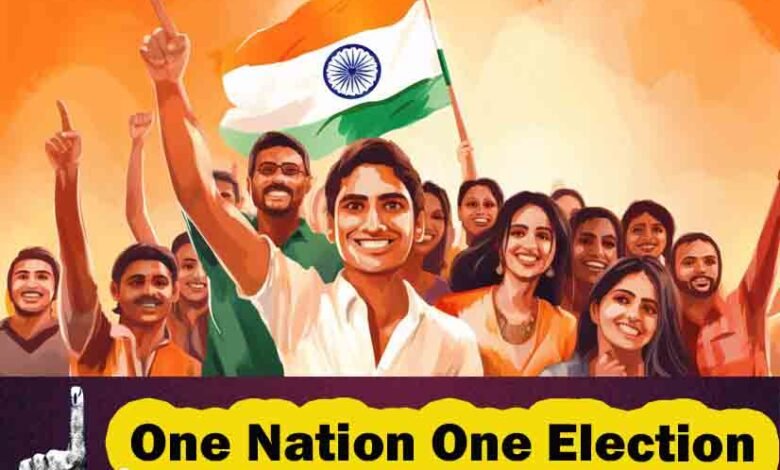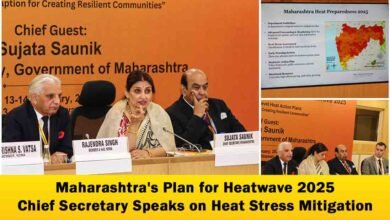One Nation, One Election: Modi Cabinet Approves Proposal, A Major Reform in Indian Elections
India moves towards simultaneous Lok Sabha and Vidhan Sabha elections with the "One Nation, One Election" proposal, set for parliamentary debate in the winter session

New Delhi: In a landmark decision, the Union Cabinet, led by Prime Minister Narendra Modi, has approved the “One Nation, One Election” proposal, aiming to synchronize Lok Sabha and Vidhan Sabha elections. This ambitious reform seeks to streamline the electoral process, reduce costs, and enhance governance efficiency.
The bill, which will be tabled in the upcoming winter session of Parliament, is based on the recommendations of a high-level committee chaired by former President Ram Nath Kovind. The committee proposed significant changes to the electoral system, including conducting local body elections within 100 days of Lok Sabha and state assembly polls.
A Historic Reform: What is “One Nation, One Election”?
If implemented, the One Nation, One Election system will combine all state assembly elections, Lok Sabha elections, and local body elections. This synchronized electoral cycle aims to:
- Reduce administrative and financial burden: By cutting down the frequency of elections, resources can be better allocated.
- Enhance voter turnout: A single-day election is expected to simplify participation.
- Accelerate development: Policies and projects often stalled due to frequent elections can progress without interruptions.
India previously conducted simultaneous elections between 1952 and 1967. However, the practice ended due to state reorganizations and political changes. The proposed reform would mark a return to this system after more than five decades.
Constitutional Amendments Needed
The proposal will require amendments to key constitutional provisions, including:
- Article 83: Tenure of Houses of Parliament.
- Article 172: Tenure of State Legislatures.
- Article 325: Related to voter rolls.
The report recommends a unified electoral roll managed by the Election Commission of India in consultation with state election bodies.
Challenges Ahead
While the NDA government holds a majority in both houses, passing the bill poses challenges. A two-thirds majority is required:
- In the Rajya Sabha, the NDA controls 112 of 245 seats but needs at least 164 votes.
- In the Lok Sabha, the NDA’s 292 seats fall short of the 364 needed.
The proposal will also need to address concerns from opposition parties and various state governments regarding its implementation and implications on federalism.
Expert Panel Behind the Proposal
The high-level committee included prominent figures such as:
- Amit Shah, Union Home Minister
- Ghulam Nabi Azad, Former MP
- Harish Salve, Senior Advocate
- Adhir Ranjan Chaudhary, Congress Leader
- NK Singh, Former Chairman of the 15th Finance Commission
- Subhash Kashyap, Political Scientist
These experts deliberated extensively to craft a comprehensive report outlining the legal, logistical, and administrative framework for the reform.
Potential Benefits of the Proposal
Proponents argue that the system will:
- Reduce the cost and time involved in conducting elections.
- Increase political stability by minimizing policy changes due to frequent elections.
- Improve governance as governments can focus on development without election-related disruptions.
The One Nation, One Election bill, if passed, will mark a significant milestone in India’s democratic evolution. However, achieving consensus in Parliament and among states will be a critical test for the government.
As the debate unfolds, India stands at the cusp of a historic electoral reform that could redefine its political landscape.




